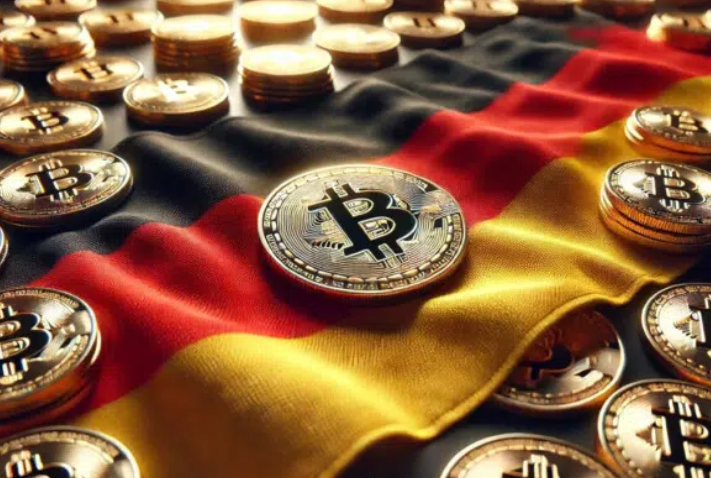The transfer to anonymous addresses, particularly those ending in “139Po,” “guzr4j” and “bc1qu,” has raised speculation.
The German government’s Bitcoin wallet now holds just 6,394 Bitcoin, reflecting a 90% decrease from its initial holdings, following transfers involving cryptocurrency exchanges on July 12th.
Initially seized during a crackdown on a film pirating website in January, the German government’s Bitcoin holdings, totaling 49,857 BTC at the time, have been subject to extensive transactions.
On July 11th, the German government’s Bitcoin wallet sent out 10,620 BTC, worth around $615 million, to platforms like Coinbase, Bitstamp, Kraken, and anonymous addresses, but later received some funds back, restoring holdings above 9,000 BTC.
On July 12th, the German government’s Bitcoin wallet sent out another 2,700 BTC, worth around $153 million, to platforms like Coinbase, Bitstamp, Kraken, and anonymous addresses.
The transfer to anonymous addresses, particularly those ending in “139Po,” “guzr4j” and “bc1qu,” has raised speculation. Analysts suggest these addresses likely belong to institutional deposit or over-the-counter trading services, though this has yet to be confirmed.
This series of transactions has drawn criticism from figures like Joana Cotar, a German lawmaker and Bitcoin activist, who argued that Bitcoin could have served as a strategic reserve currency amid traditional financial risks.
Concerns over Mt. Gox’s reported $8 billion Bitcoin sale to creditors and developments in Germany have led to a recent Bitcoin price downturn, with the Crypto Fear & Greed Index entering the “Extreme Fear” zone, as Bitcoin trades at $57,100, down 1.8% in 24 hours and 15.3% in the last month.
The German government’s actions regarding its Bitcoin holdings continue to be closely watched as they navigate these controversial transactions amid broader market uncertainties.

